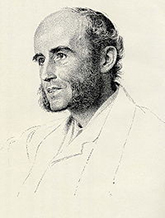John Richard Green Collection
- Catholic University of Ireland Collection
- Curran-Laird Book Collection
- Eamon de Valera Collection
- Franciscan Collection
- Keith Freeman Collection
- John Richard Green Collection
- Joseph Hassett Collection
- Thomas Johnson Collection
- Thomas Kinsella Collection
- John McCormack Collection
- John Manning Collection
- Maps in Special Collections
- David Nolan Collection
- Dennis O'Driscoll Collection
- Colm Ó Lochlainn Books
- Francis J. O’Kelley Collection
- Charles Hubert Oldham Collection
- Christopher Palles Collection
- Poetry Ireland/Austin Clarke Collection
- Canon Patrick Power Collection
- Pádraig Puirséal Collection
- Dr. John Satchell Rake Yeats Collection
- Royal College of Science for Ireland Collection
- Royal University of Ireland Collection
- Clement King Shorter Collection
- John Lincoln Sweeney Collection
- Heinrich Zimmer Collection
- Named Collections
- A Gallery of Print Images
John Richard Green
UCD Library Special Collections holds the collection of John Richard Green.
The Collection
This is a collection of mid to late nineteenth-century books, mostly relating to English and religious history. Presently, there are around 150 books identified as having John Richard Green’s bookplate and we are currently working to locate additional books that may belong to this collection. The collection was donated by Alice Stopford Green in the 1920s.
Collection Highlights
- Rerum Anglicarum Scriptores Post Bedam Praecipui, ex vetustissimis codicibus manuscriptis nunc primum in lucem editi (1596); sixteenth-century text on writers of English history after Bede;
- Ortuin Gratius, Fasciculus rerum expetendarum & fugiendarum (1690); a collection of letters and treatises on ecclesiastical and profane history, dogma and canon law.
- Acta Sanctorum (1863); a nineteenth-century edition of the encyclopaedic lives of the saints, started by Jean Bolland in the seventeenth century.
Biographical History
John Richard Green (1837–1883), historian, grew up in Oxford, England, where he would later attend Jesus College. Immediately after his graduation, Green was commissioned to write a series of articles on Oxford in the eighteenth century, chiming with his interests in English and local history; however, rather than pursue a career as a historian at this stage in his life, he trained instead as a clergyman in the Anglican church. Following his ordination in 1861, Green spent several years working in poor parishes in East London, the workload and conditions aggravating a lifelong tubercular condition. Green was interested in scientific developments and called for reform within the church. Faced with intransigence from the institution, he resigned his living in 1869 and returned to history. His first significant publication was a Short History of the English People (1874) which was popular with general readers, if not with the emerging generation of academic historians.
In 1877, Green married Alice Stopford (1847–1929). She became an important figure in Green’s work, assisting with and supporting his historical writings, particularly as his health began to fail. Following her husband’s death in 1883, Stopford Green continued to establish her own reputation as a scholar and later, as an activist interested in African and Irish issues, working with Roger Casement (she would later campaign for his reprieve) and was involved in raising money to fund arms for the Irish Volunteers. After the 1916 Rising, Stopford Green moved from London to Dublin, and continued to be active in political and scholarly life. In 1922, she was nominated to the Senate of the Irish Free State, a role in which she served until her death in 1929.
Access and Use
- The material in this collection is available by appointment to students, teaching staff, and independent researchers. We also welcome interested members of the public.
- Please contact us at (opens in a new window)special.collections@ucd.ie for further information. To book an appointment (opens in a new window)click here.
More Information
- Use (opens in a new window)the Library Catalogue to key in John Richard Green
- When you get a results screen select Special Collections from Location option in the left panel
